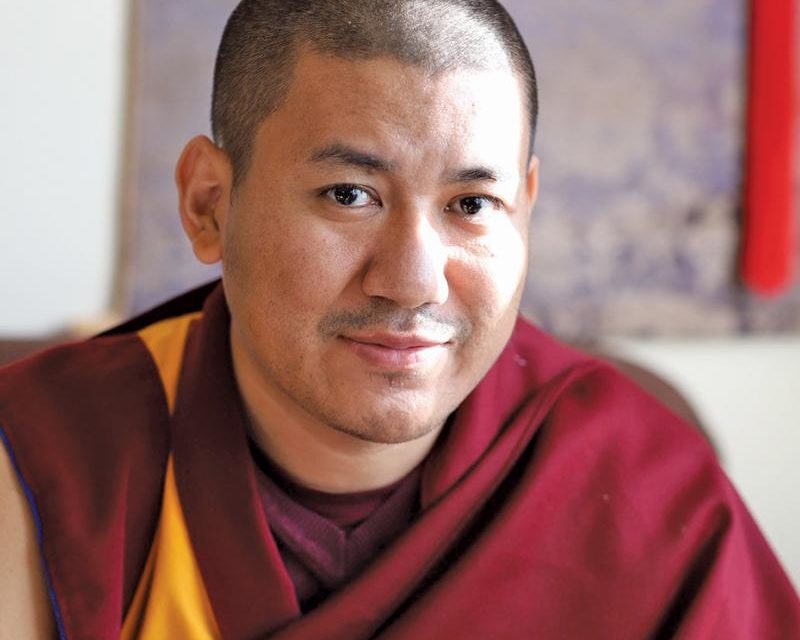When discussing how one can lose one’s way in samsara—the endless cycle of life, death, and rebirth—Demo Rinpoche talks about getting lost in an Ann Arbor roundabout. You do not get everything you want in this world, explains the resident spiritual adviser of Jewel Heart International, “otherwise you would be in heaven.”
Buddhist practices aim to end this cycle by overcoming desires, ignorance, and suffering to reach the transcendent state of nirvana. But you also have to work for it, Rinpoche says, and you may experience some discomfort—don’t be like his childhood friend who really wanted to become a doctor so that he could ride in a helicopter, but who failed to study, ever.
Rinpoche’s Sunday dharma talks deftly weave together Tibetan Buddhist teachings with everyday life in Ann Arbor, an international perspective, and a charming humor (sometimes he even gets the giggles). Even for those who are not Buddhist, these Sunday talks can be a soothing salve.
While discussing the fear of loneliness during the pandemic, Rinpoche clarifies that being alone at home is not the same as having no one. There are many Tibetan practitioners who go away on retreat alone for three years and do not feel lonely. He connects the principle of compassion to the happiness that comes from protecting others by wearing a mask and the principle of care with the way we wait while Canada geese walk, ever so slowly, across the road. Stories about RBG, comedians, celebrities, recycling, iPhones, and his tiny dog with anger problems also help make big concepts tangible and difficult subjects manageable.
When Covid-19 came to Michigan, Jewel Heart, the Tibetan Buddhist center on Oak Valley Drive, moved its Sunday services completely online. Each talk is preceded by a guided meditation and followed by a facilitated group discussion based on the morning’s talk. Production quality is great— Jewel Heart has been recording and broadcasting talks for years (there’s an archive on its YouTube channel).
Demo Rinpoche was educated at Drepung Loseling Monastery and Gelugpa University in India and Union Theological Seminary in New York City. He came to the United States at the request of Gelek Rimpoche, the founder of Jewel Heart, who died in 2017. (Rinpoche and Rimpoche are alternate transliterations of an honorific meaning “precious one.”)
When sharing a Tibetan teaching to not expect that you will be able to recognize a bad friend by the horns on his head, he says, “like Hellboy.” He talks about reading Indian storybooks as a boy which featured epic battles between gods and demigods, and the demigods were always drawn with horns and scary faces, so they were obviously the bad guys. Instead, a bad friend could look very much like him during his monastery days—he used to torture his friends during the World Cup by telling them the score before they had a chance to see the game.
—
Jewel Heart’s Sunday dharma talks are webcast via Zoom every Sunday at 11 a.m. Free, but preregistration is required at jewelheart.org.
